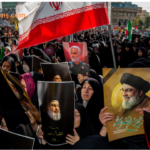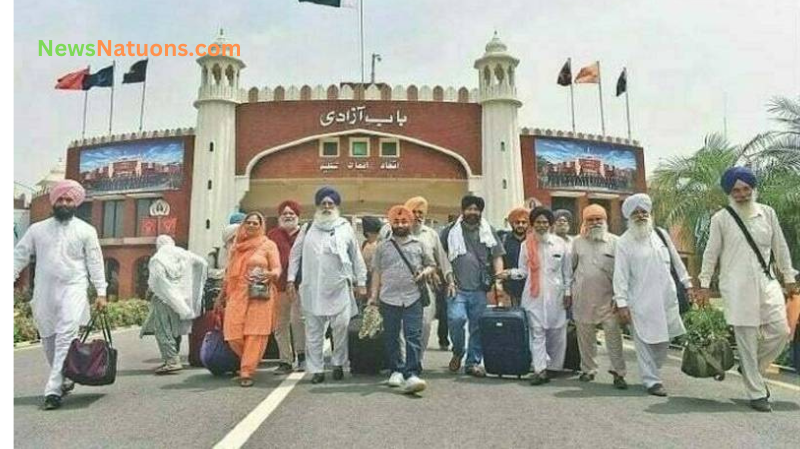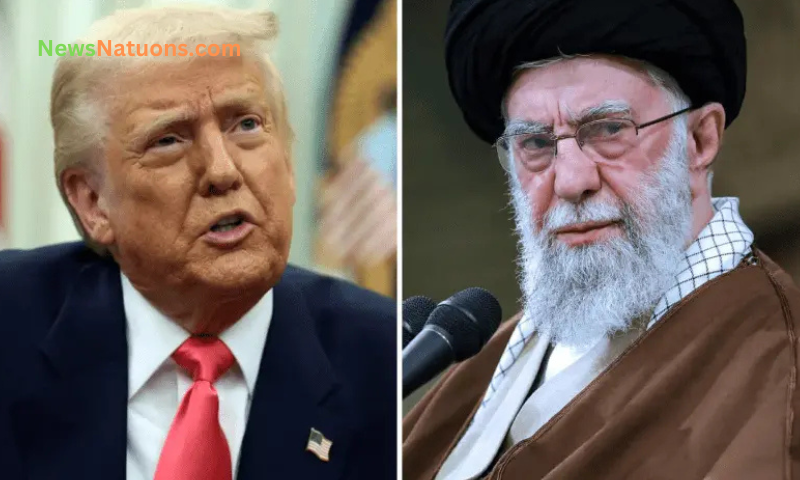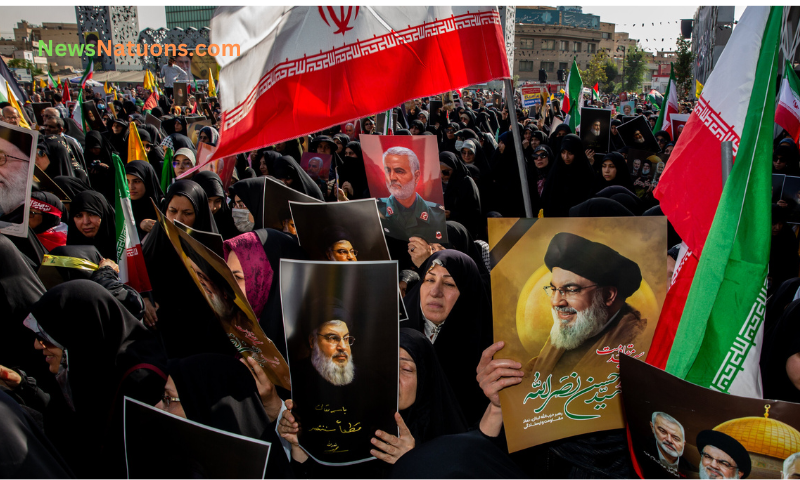In a move that has drawn attention from across the region, India has reportedly stopped Sikh pilgrims from traveling to Pakistan to attend the religious ceremonies marking the martyrdom day of Guru Arjan Dev Ji. This development was confirmed by the spokesperson of the Evacuee Trust Property Board (ETPB), the body responsible for the management of religious sites left behind by non-Muslims in Pakistan.
According to the ETPB spokesperson, the Sikh pilgrims were scheduled to arrive in Pakistan on June 9 to participate in the annual rituals commemorating the sacrifice of Guru Arjan Dev Ji, the fifth guru of Sikhism. This day holds great religious and historical significance for Sikhs around the world, and every year a large number of pilgrims from India make the journey to Pakistan to visit the sacred sites related to their heritage.
Ceremonial Arrangements at Wagah Border Despite Pilgrims’ Absence
In light of the cancellation, the ETPB has decided to carry out a symbolic reception at the Wagah Border. Preparations for this reception had already been made in anticipation of the arrival of Sikh devotees. A special stage was set up at the border to welcome the pilgrims with traditional hospitality and respect.
Despite the absence of the Indian Sikh pilgrims, officials from the Pakistan Sikh Gurdwara Parbandhak Committee (PSGPC) will remain present at the Wagah Border. They will carry out the symbolic welcome to show solidarity and respect for the religious sentiments of the Sikh community, both in India and across the globe.
The decision to carry out this symbolic reception reflects Pakistan’s continued commitment to providing religious freedom and safeguarding Sikh heritage sites. It also highlights the disappointment felt by the local Sikh leadership and community due to the Indian government’s decision.
Guru Arjan Dev Ji’s Martyrdom and Its Importance
Guru Arjan Dev Ji is a central figure in Sikh history. He was the first Sikh martyr and the fifth Guru of Sikhism. His martyrdom is observed with deep reverence, especially at Gurdwara Dera Sahib in Lahore, where thousands of devotees gather every year. The day marks his sacrifice in the face of religious persecution and is a symbol of resilience and spiritual strength for Sikhs.
The rituals associated with this day are not only a religious observance but also a historical tradition passed down for generations. For many Indian Sikhs, visiting Pakistan during this time is a spiritual journey that connects them with their roots.
Reactions from Sikh Community and Leaders
The decision to prevent Sikh pilgrims from crossing into Pakistan has been met with disappointment and frustration among Sikh leaders and religious organizations. Many see this as a denial of their religious freedom and a political move that interferes with their spiritual practices.
Sikh organizations in India have often criticized the restrictions placed on religious travel, especially when it involves visiting historical Gurdwaras located in Pakistan. These sacred sites, including Gurdwara Dera Sahib, Gurdwara Panja Sahib, and others, hold immense importance in Sikh history, and many Sikhs consider it their religious right to visit them.
Leaders from the Pakistan Sikh community have also expressed their sorrow and extended their heartfelt sympathies to those Indian Sikhs who were preparing for the pilgrimage. The symbolic reception at the Wagah Border is also seen as a gesture of solidarity and acknowledgment of the spiritual connection between the Sikh communities on both sides of the border.
The Politics Behind Religious Travel
This recent event sheds light on the ongoing tensions between India and Pakistan and how these political differences can impact religious and cultural exchanges. Over the years, the strained diplomatic relationship has repeatedly affected the ability of pilgrims from both sides to visit sacred sites, even when agreements have been made under bilateral protocols.
While the Pakistan government has repeatedly emphasized its commitment to religious tourism and minority rights, including facilitating Sikh pilgrims, the Indian government’s stance remains cautious and sometimes restrictive. This has raised questions about the future of cross-border religious travel and the rights of minority communities to freely practice their religion.
A Call for Religious Harmony and Understanding
The refusal to allow Sikh pilgrims to attend the martyrdom ceremonies of Guru Arjan Dev Ji is more than just a missed visit. It represents a wider issue of religious freedom and the role of politics in spiritual life. Events like this serve as reminders that faith should rise above political divides.
As Pakistan continues to show its willingness to host religious minorities and preserve their sacred heritage, the international community and human rights groups may need to advocate more strongly for unhindered religious travel. Religious events like Guru Arjan Dev Ji’s martyrdom day should be moments of unity and reflection, not division.
The hope remains that in the future, both governments will find a way to ensure that faith and history are not held hostage by politics.
بھارت نے ایک بار پھر سکھ برادری کے مذہبی جذبات کو نظر انداز کرتے ہوئے سکھ یاتریوں کو پاکستان آنے سے روک دیا ہے۔ ترجمان متروکہ وقف املاک بورڈ کے مطابق بھارتی حکومت نے ان سکھ یاتریوں کو اجازت نہیں دی جو 9 جون کو گرو ارجن دیو جی کے شہیدی دن کی رسومات میں شرکت کے لیے پاکستان آنا چاہتے تھے۔
گرو ارجن دیو جی سکھ مذہب کے پانچویں گرو ہیں جن کی شہادت کا دن سکھ برادری کے لیے بے حد اہمیت رکھتا ہے۔ ہر سال ہزاروں سکھ یاتری بھارت سے پاکستان آتے ہیں تاکہ لاہور میں واقع گوردوارہ ڈیرہ صاحب پر حاضری دے سکیں، لیکن اس سال بھارتی حکومت کی پابندی کی وجہ سے یہ زیارت ممکن نہ ہو سکی۔
واہگہ بارڈر پر یاتریوں کے لیے علامتی استقبال کی تیاریاں
یاتریوں کی آمد رکنے کے باوجود پاکستان کی جانب سے روایتی مہمان نوازی کی مثال قائم کرتے ہوئے واہگہ بارڈر پر یاتریوں کے لیے علامتی استقبال کی تیاریاں مکمل کی گئیں۔ ترجمان کے مطابق ایک خصوصی استقبالیہ اسٹیج تیار کیا گیا ہے جہاں پاکستان سکھ گوردوارہ پربندھک کمیٹی کے نمائندے یاتریوں کا علامتی خیرمقدم کریں گے۔
یہ علامتی قدم پاکستان کے جذبہ خیرسگالی اور مذہبی آزادی کے احترام کو ظاہر کرتا ہے۔ اگرچہ بھارتی یاتری جسمانی طور پر پاکستان نہیں آ سکے، لیکن ان کے لیے محبت، احترام اور روحانی یکجہتی کا پیغام پاکستان سے ضرور پہنچایا گیا۔
گرو ارجن دیو جی کی شہادت کا پس منظر
گرو ارجن دیو جی سکھ تاریخ کی ایک عظیم اور روحانی شخصیت ہیں جن کی شہادت سکھوں کے لیے قربانی، صبر، اور ایمان کی علامت ہے۔ ان کی یاد میں ہر سال خصوصی رسومات کا انعقاد کیا جاتا ہے، خاص طور پر لاہور کے گوردوارہ ڈیرہ صاحب میں جہاں وہ شہید ہوئے تھے۔
یہ دن صرف ایک مذہبی موقع نہیں بلکہ ایک تاریخی ورثہ بھی ہے جسے سکھ برادری نسلوں سے مناتی آ رہی ہے۔ بھارتی سکھوں کے لیے اس دن پاکستان آکر رسومات میں شرکت کرنا ایک روحانی فریضہ ہوتا ہے، جو انہیں ان کے مذہبی جڑوں سے جوڑتا ہے۔
سکھ برادری اور رہنماؤں کا ردِ عمل
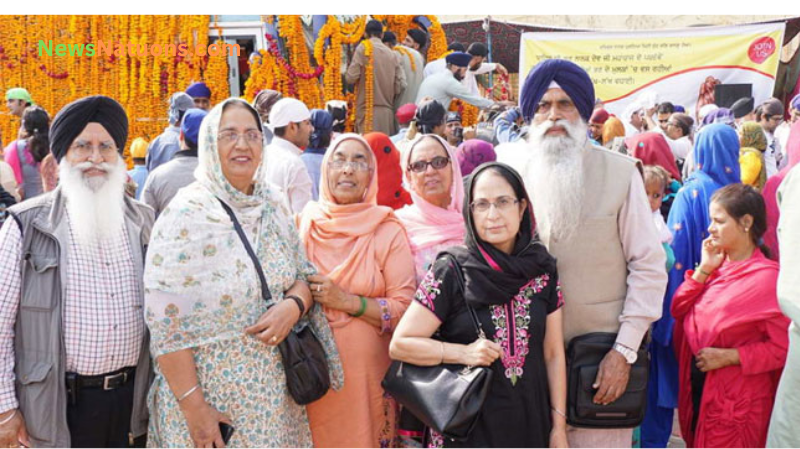
بھارتی حکومت کے اس فیصلے پر سکھ برادری اور ان کے مذہبی رہنماؤں نے شدید افسوس کا اظہار کیا ہے۔ ان کا کہنا ہے کہ مذہبی رسومات میں شرکت ان کا بنیادی حق ہے جسے بار بار سیاسی بنیادوں پر روکا جاتا ہے۔
سکھ تنظیموں کا کہنا ہے کہ پاکستان میں واقع تاریخی گوردوارے ان کے مذہبی عقائد کا حصہ ہیں اور وہاں حاضری دینا ان کا دینی فریضہ ہے۔ پاکستان میں سکھ رہنماؤں نے بھی بھارتی سکھوں سے یکجہتی کا اظہار کیا اور ان کے لیے خصوصی دعاؤں اور یادگاری تقریبات کا اہتمام کیا گیا۔
مذہبی سفر اور سیاست کا ٹکراؤ
یہ واقعہ ایک بار پھر اس حقیقت کو اجاگر کرتا ہے کہ پاک بھارت تعلقات میں کشیدگی مذہبی معاملات پر بھی اثر انداز ہو رہی ہے۔ دونوں ملکوں کے درمیان موجودہ تناؤ بارہا ایسے مذہبی مواقع کو متاثر کرتا رہا ہے، حالانکہ ان کے لیے باقاعدہ پروٹوکولز موجود ہیں۔
پاکستان نے ہمیشہ اقلیتوں کے مذہبی حقوق اور مقدس مقامات کے تحفظ کی حمایت کی ہے، جبکہ بھارت کی جانب سے سکھوں کے مذہبی سفر پر پابندیاں شکوک و شبہات کو جنم دیتی ہیں۔
مذہبی ہم آہنگی اور یکجہتی کی ضرورت
گرو ارجن دیو جی کے شہیدی دن کی تقریبات میں رکاوٹ مذہبی ہم آہنگی کے لیے ایک بڑا چیلنج ہے۔ ایسے مواقع کو سیاست سے الگ رکھنا ناگزیر ہے تاکہ مذہبی آزادی اور عقیدے کا احترام قائم رہ سکے۔
پاکستان نے اپنی جانب سے مذہبی رواداری اور اقلیتوں کے احترام کا جو پیغام دیا ہے، وہ قابل ستائش ہے۔ ضرورت اس امر کی ہے کہ دونوں ممالک مل کر ایسے اقدامات کریں جن سے مذہب، عقیدے اور روحانی رابطے کو فروغ ملے نہ کہ روکا جائے۔
مستقبل میں امید ہے کہ بھارتی سکھ یاتریوں کو مکمل آزادی کے ساتھ پاکستان میں واقع مقدس مقامات پر حاضری کی اجازت ملے گی، تاکہ عقیدے اور محبت کے یہ رشتے مزید مضبوط ہو سکیں۔



